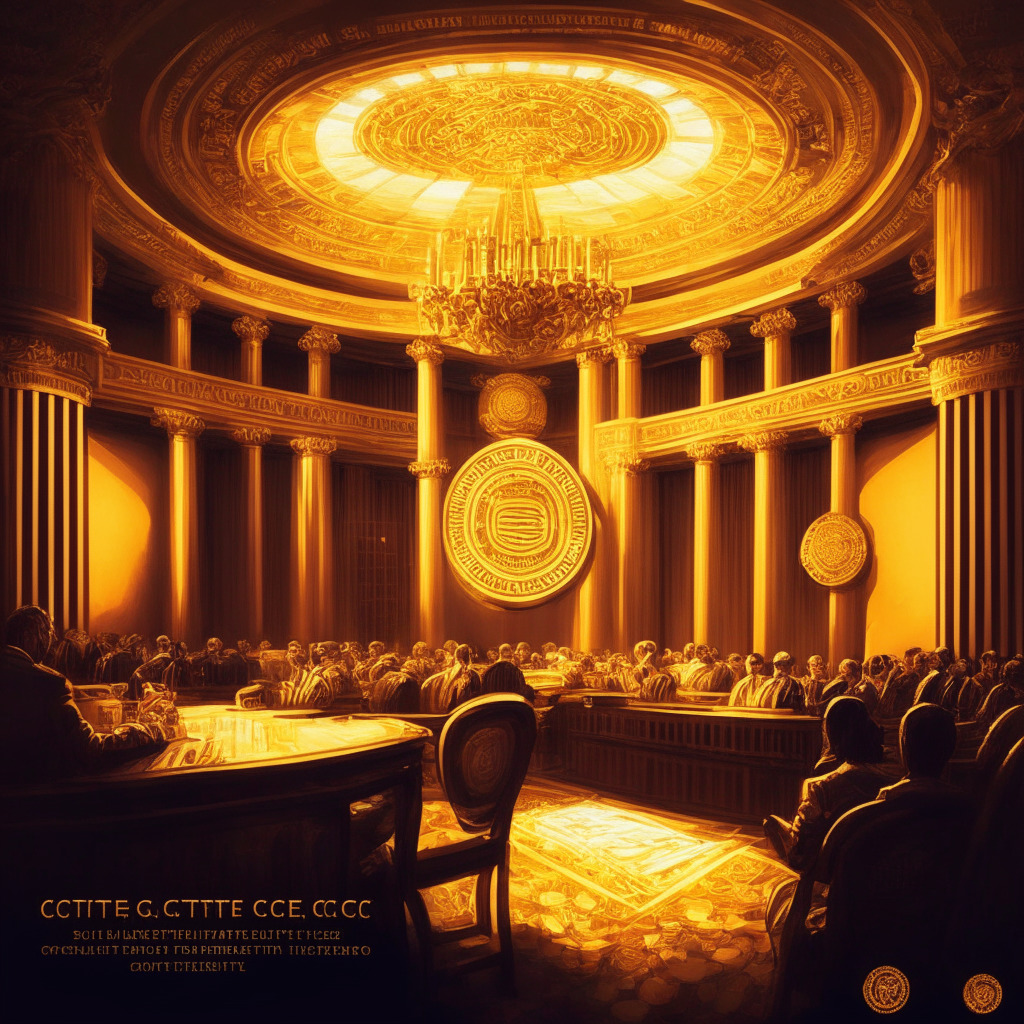As the old saying goes, “Behind every great fortune, there’s a crime.” In the case of the ill-fated cryptocurrency exchange FTX, those familiar with its operations believe this crime had a generational involvement. New light has been shed on the significant role played by Joe Bankman, father of Sam Bankman-Fried, the mastermind behind FTX. Bankman, known as a respected law professor at Stanford, reportedly had a hands-on role guiding the enterprise which was more complex than previously thought.
Interestingly, the academic’s involvement came to public attention through FTX’s Super Bowl ad where he featured alongside Larry David. Donning a powdered wig, he appeared as a founding father—a striking image in itself. After the ad aired, Bankman reportedly took up an official role in his son’s enterprise. His responsibilities were vast and included drafting early legal documents, a role usually entrusted to seasoned corporate lawyers.
The plot thickened when the company’s law firm’s invoices began listing Bankman as an attendee in key meetings. These involved the formation of marketing materials for FTX’s native cryptocurrency, FTT, which spiralled into the centre of the exchange’s downfall. With the disclosure that FTT made up a sizeable chunk of Alameda’s $14.6 billion in assets, customers panicked, and a withdrawal frenzy began. The company, burdened by its leadership’s hefty spending habits, couldn’t stay afloat and declared bankruptcy within days.
Bankman’s influence didn’t end at strategic considerations. When faced with legal proposals from employees, his son, SBF, would often need to “call Joe” first. Their relationship extended to financial support too; Joe used FTX’s funds to back his son’s legal defence, according to Forbes. Unfortunately, not all of this support produced positive results. Reports suggest that Joe depleted at least a million of Alameda’s funds on poorly judged cryptocurrency trades.
And so, the Bankman influence extended even further to Sam’s brother, Gabe, who actively participated in FTX’s conduct while leading a nonprofit funded by FTX. While advocating for effective altruism, he devised a peculiar plan to acquire Nauru, a small island nation, as a bunker for survival amidst a global disaster.
As the FTX controversy unravels, it’s been disclosed that the exchange still holds approximately $7 billion in assets. It’s been granted permission to divest its cryptocurrency holdings, including $1.16 billion in SOL and $560 million of BTC, to repay creditors. Notably, Tron Network’s founder, Justin Sun, has been eyeing these assets, considering a bid to mitigate potential market turbulence while fueling growth in the sector. As this tangled story continues to unravel, this serves as a potent reminder that professionalism and propriety must go hand in hand in any financial undertaking, especially in the volatile world of cryptocurrencies.
Source: Cryptonews




